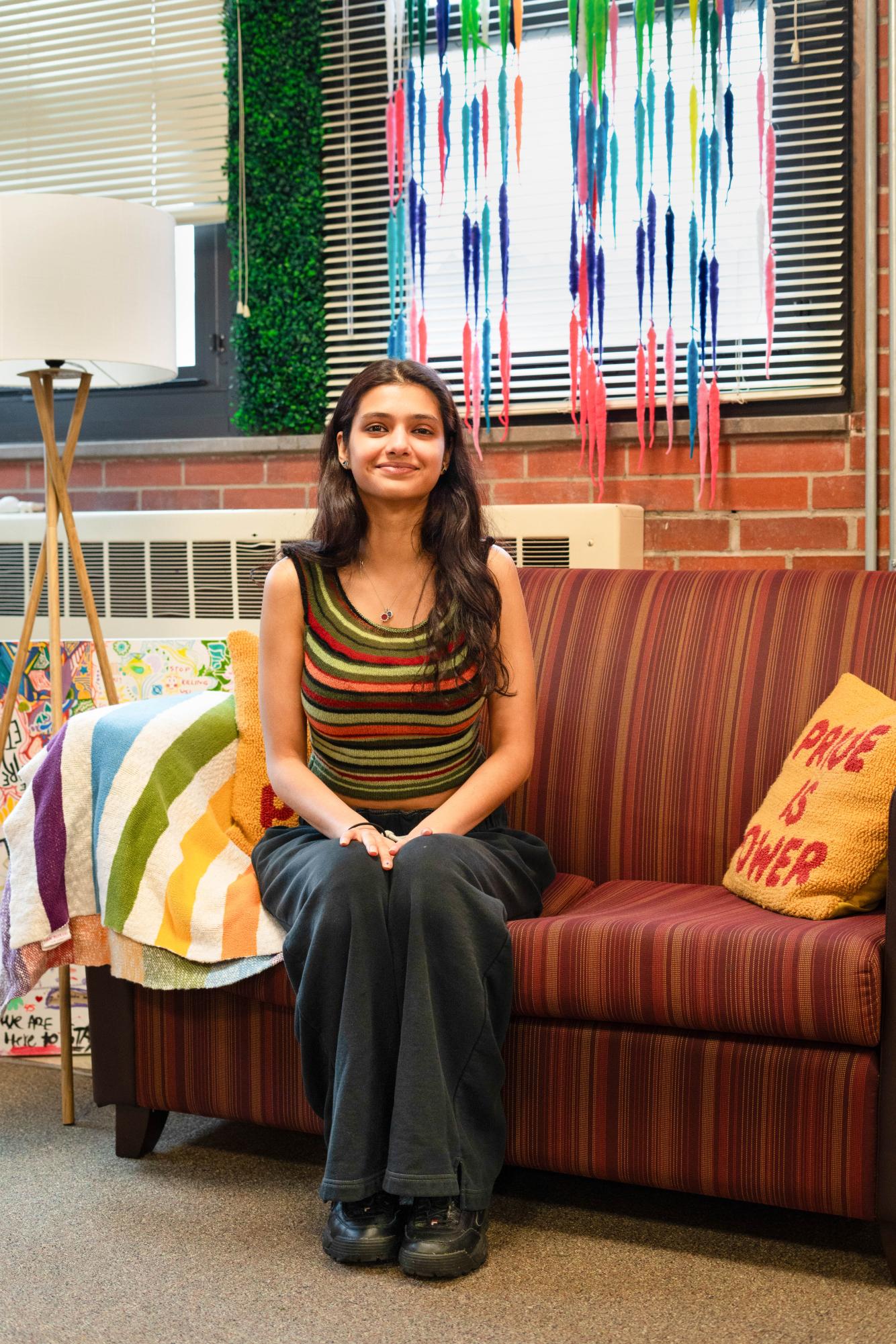
Ekta Shaikh `24 said that the first memory she has of Grinnell is of snow. Originally hailing from Karachi, Pakistan, she said, “It was a bit unreal because I was coming from Karachi, and the first thing I see is snow, just sheets of snow, like white, thick snow everywhere. And that’s how I remember Iowa.” She came to Grinnell because she liked the liberal arts model, specifically its open curriculum.
Shaikh, who took a semester off before attending college, came to campus in the spring 2021 semester during the height of the COVID-19 pandemic. At that time, all her classes were online, and not every student was living on campus. She said that this affected her attitude towards college which she had come into wanting to make friends and have a classic college experience. “I just got so used to studying in my room, working in my room, doing everything in my room,” she said.
However, things normalized during her second semester at the College in the fall 2022 semester. “I did go home that summer, and then I came back, and it honestly felt like a normal school year after that. I mean, the transition was still transitioning, because I was like, ‘Okay what year am I? What am I doing here? Like, what the fuck is happening?’” Shaikh said that her second semester, which featured in-person classes, was when she started to make friends and settle into campus life.
Shaikh is an anthropology and gender, women’s and sexuality studies (GWSS) major. She said that she came in knowing she wanted to study anthropology, but after taking an intro GWSS class she immediately knew it was right. “I was like, ‘this is what I was meant to do my entire life,’” she said.
One of Shaikh’s favorite classes at Grinnell was ENG 273: Transnational and Postcolonial Feminisms with Shuchi Kapila, professor of English, who she deems one of her favorite professors. She said, “[Kapila] always makes me think a little bit harder.”
Shaikh worked with Kapila as a research assistant in fall 2022, transcribing interviews and reviewing chapters for Kapila’s most recent book, “Postmemory and the Partition of India: Learning to Remember.” Of her own relationship to the work, Shaikh said, “Both my mom and my dad, our families migrated from India into Pakistan, so there is this kind of relationship to the self. I’ve always been interested in partition studies as a whole.”
She has also worked extensively with Caleb Elfenbein, professor of history and religious studies. Elfenbein is her advisor for her studies in Africa, Middle East and South Asia concentration. Shaikh said, “I met [him] in my first semester, and then I’ve worked with him ever since.”

Shaikh has been a Vivero Fellow since 2022, an experience she highly recommends. Through this program, she does peer mentoring and worked on a project with Elfenbein titled, “Mapping Islamophobia.”
Additionally, Shaikh studied abroad in Serbia in the summer of 2022, where she said she studied “transitional justice, human rights and memory activism.” The experience was two months, she said, with one month of classes on the break of Yugoslavia and the next month of an internship with a legal non-profit in Serbia working with undocumented migrants. “Mostly, I was working with Pakistani and Afghani migrants as a translator, and then also I would go to the field to document illegal pushback,” she said.
Shaikh also worked with Brigittine French, professor of anthropology, for the past year to design a class titled ANT-295: Feminist Anthropology as a pedagogy partnership. “What a great experience to have in terms of feeling agency in your education,” she said. “I could bring my gender studies and anthro major together in such an interdisciplinary and cumulative kind of way, and also be able to center topics that are of interest to me — so like transnationality, centering more readings from the Global South, for example.”
Last summer, Shaikh was granted the Fischlowitz Travel Fellowship, which she used to travel to five different U.S. cities to visit museums with South Asian exhibitions and collections.
Shaikh will be graduating in just seven semesters after taking extra credits throughout most of her semesters at Grinnell. “Honestly, it didn’t feel painful at all because I just love to study,” she said. However, she also admitted that this penchant for schoolwork sometimes came at the cost of going out with her friends.
After graduation, Shaikh plans to return to Karachi to work with a nonprofit called Gender Interactive Alliance to work with the transgender community in the city for two months, made possible through a grant from Davis Projects for Peace. She cites Sara Ahmed’s book “Living a Feminist Life” as her inspiration for this work, saying “I’m wholly inspired about what she has to say about bringing feminist theory home, so this project is my attempt at that.” After that, she said her current plan is to get a job in the U.S. and eventually go to graduate school.
When asked what she’ll miss about Grinnell, she said, “I’ll miss the access that I have to people when I want to have a conversation. I know if I like someone’s idea, I could just be like, ‘Hey, we should chat about this over coffee,’ or ‘Hey, tell me more.’”







